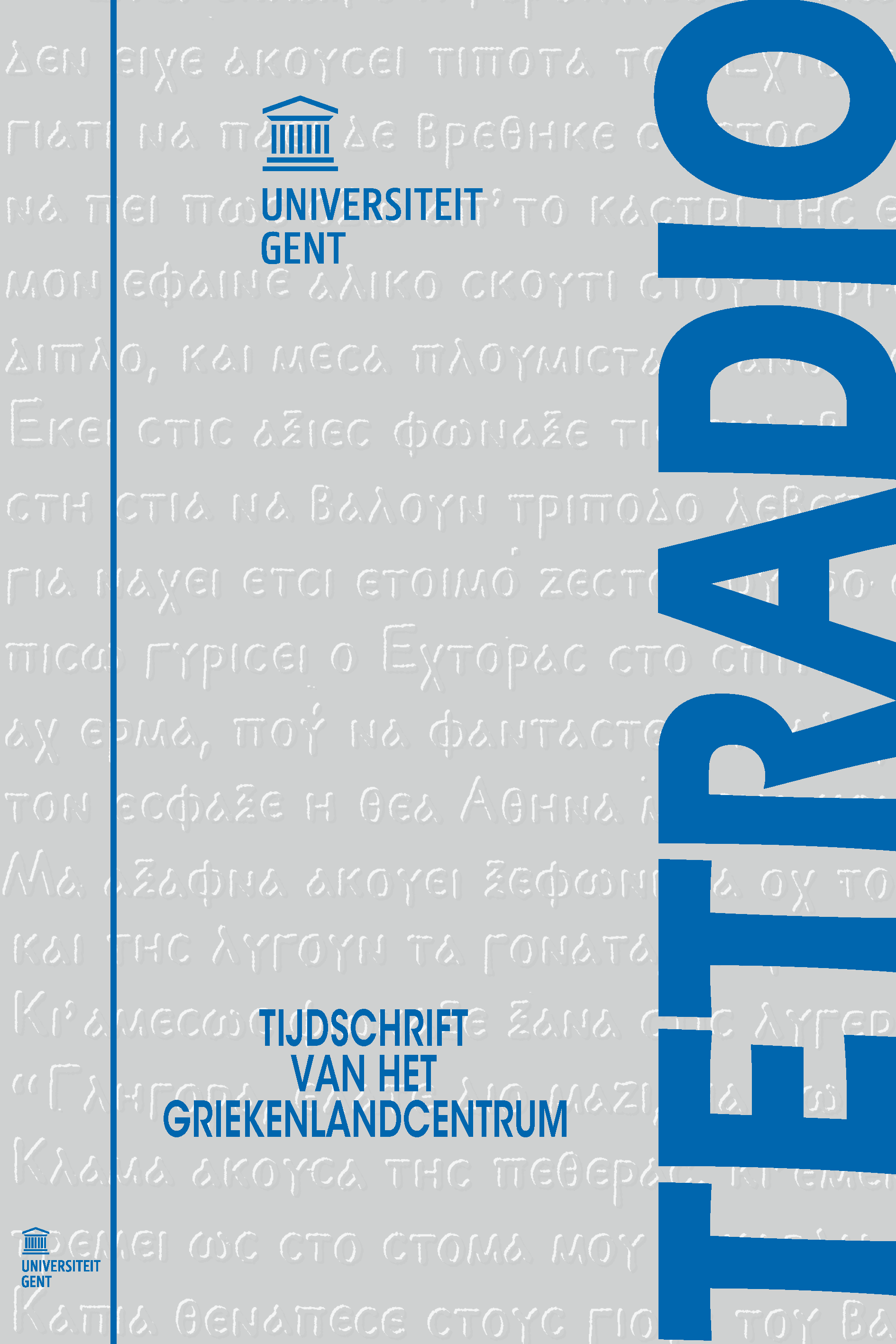De agonie van de hond: Over het naturalisme in de Nieuwgriekse literatuur
- Pieter Borghart
Abstract
The term “naturalism” covers a range of divergent meanings. Therefore, the first part of the present article confronts a number of traditional definitions of this European literary movement with a more nuanced view which inevitably emerges from a global reading of Emile Zola’s total theoretical output: naturalism as a specific type of realism that attempts to transgress the boundaries between literature and science by using literary texts as a means of acquiring (sociological) knowledge and spreading it among the contemporary reading public. Subsequently, such a conception of literature of course did not arise out of the blue, but originated throughout Europe (including Greece) at the end of the 19th century in a more or less similar cultural historical context, consisting of the following components: (1) the presence of a broader movement of realist literature (realism before 1880, ηθογραφία), (2) a cultural historical background that justifies the connection between literature and the idea of an objective and scientific study of the contemporary society (λαογραφία), and (3) assignable “material” reception of French or other European naturalism (translations, articles, manifests). Finally, the last part of this paper shows how the Greek literary system of the time managed to implement European naturalism in an idiosyncratic way, for Greek naturalism did not restrict itself to the assimilation of “social” knowledge – as frequently happened in other European variants – but also exhibits a strong “laographic” dimension.
How to Cite:
Borghart, P., (2006) “De agonie van de hond: Over het naturalisme in de Nieuwgriekse literatuur”, Tetradio 15(1): 1, 7–28. doi: https://doi.org/10.21825/tetradio.91759
Downloads:
Download PDF
View PDF
